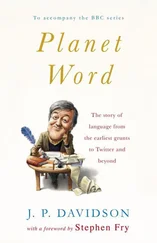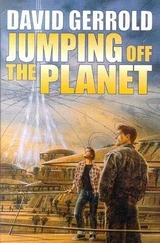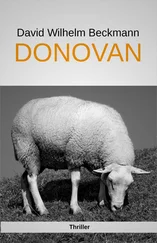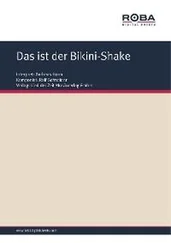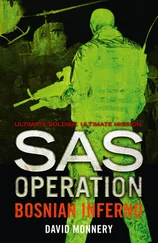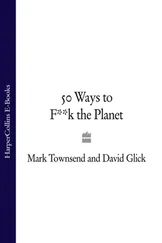David Garnet - Bikini Planet
Здесь есть возможность читать онлайн «David Garnet - Bikini Planet» весь текст электронной книги совершенно бесплатно (целиком полную версию без сокращений). В некоторых случаях можно слушать аудио, скачать через торрент в формате fb2 и присутствует краткое содержание. Год выпуска: 2000, ISBN: 2000, Издательство: Roc, Жанр: Фантастика и фэнтези, на английском языке. Описание произведения, (предисловие) а так же отзывы посетителей доступны на портале библиотеки ЛибКат.
- Название:Bikini Planet
- Автор:
- Издательство:Roc
- Жанр:
- Год:2000
- ISBN:0-451-45860-5
- Рейтинг книги:3 / 5. Голосов: 1
-
Избранное:Добавить в избранное
- Отзывы:
-
Ваша оценка:
- 60
- 1
- 2
- 3
- 4
- 5
Bikini Planet: краткое содержание, описание и аннотация
Предлагаем к чтению аннотацию, описание, краткое содержание или предисловие (зависит от того, что написал сам автор книги «Bikini Planet»). Если вы не нашли необходимую информацию о книге — напишите в комментариях, мы постараемся отыскать её.
Bikini Planet — читать онлайн бесплатно полную книгу (весь текст) целиком
Ниже представлен текст книги, разбитый по страницам. Система сохранения места последней прочитанной страницы, позволяет с удобством читать онлайн бесплатно книгу «Bikini Planet», без необходимости каждый раз заново искать на чём Вы остановились. Поставьте закладку, и сможете в любой момент перейти на страницу, на которой закончили чтение.
Интервал:
Закладка:
“Yeah.”
Grawl continued to do nothing.
Norton supposed that was all there was to do, although he wished Grawl would look elsewhere while doing it.
There was far more room in the lifeboat than in the cell, and at least he could stand upright; but Norton felt much more cramped, far more of a prisoner.
It was going to be a long voyage.
“Are we going anywhere, do you know? Are we just drifting?”
A long, silent voyage.
They stood looking at each other for a long while. In silence.
To pass the time, Norton thought of a whole series of questions which Grawl could answer with a single nod or shake of the head. Asking them would also have passed the time. But even if Grawl replied, it wouldn’t have been much of a conversation, and Norton decided to save them for later. In case Grawl ever became more communicative.
Suddenly, Grawl moved. He raised both hands, and Norton quickly stepped back as far as he could, which was all of eighteen inches. Grawl held his left hand up, sideways to Norton, and rested his right hand horizontally across the fingertips.
His hands were in the shape of a single letter.
“ ‘T’?” said Norton.
Grawl nodded.
While he waited for Grawl’s second letter, it was Norton’s turn to do nothing. But then Grawl turned away and opened a cupboard in the hull of the lifeboat. It was full of jars, pots, and containers, and he set to work. He made himself a drink. It must have been tea, Norton realised, something he hadn’t heard of for hundreds of years.
“Tea!” he said. “Oh, I see. You meant ‘tea’ the drink, not ‘T’ the letter. Sorry. I didn’t understand. I thought you were spelling out something, and I was waiting for the next letter, and I thought, ‘This is going to be a long conversation if he has to signal every letter.’ Yeah. Please. I will have a cup of tea. Thanks. Kind of you to offer. It’s not my favourite drink. I’m more of a coffee type of guy. But at the moment I’ll drink anything. No. Not anything, of course. Tea will be great. Really great. Really. I can’t think of anything better. Thank you very much. Yeah. Please. Yeah. Thanks.”
Grawl turned around again, raised his right hand, lifted his index finger. For a moment, Norton thought he was mocking him, doing something Norton no longer could. Then Grawl put his finger to his lips.
If anyone else had made such a gesture, it would have been a simple request. When Grawl did it, it was a menacing threat.
Norton became silent. But didn’t get a cup of tea.
He watched as Grawl pulled a handle on the wall, and part of the bulkhead was transformed into a seat. Grawl sat down and drank his tea.
There was a similar handle near Norton. He pulled it, and a shelf slid open, hitting him in the groin.
“Ahhhhh! Ohhhhh! Uhhhhh!”
When Grawl glanced at him, Norton immediately became silent again, clutching at himself in agony.
Grawl had killed Kiru’s previous boyfriend. If he even suspected that Norton knew Kiru, ever found out what they had done together, Grawl would rip him apart.
What had happened to Kiru? Had her capsule survived the detonation and escaped safely? Even if it had,, he’d never see her again. The galaxy was a big place.
Despite that, Norton planned to spend the rest of his life looking for Kiru.
If he had a life.
Which all depended on Grawl.
Space is cold, silent and infinite.
The chance of two different objects from different eras and different parts of the galaxy being on convergent trajectories is incalculably small. The probability is higher than zero, however, and even a one in a trillion trillion chance is likely to occur once every trillion trillion times.
So it was with the escape pod and the chunk of ancient galactic debris.
The two objects, one natural, one synthetic, were travelling in different directions, at different speeds. Although the former was much smaller than the latter, had there been a less tangential collision it was the lifeboat which would have emerged as the smaller. Much smaller, in fact. Transformed into thousands of very small particles.
They passed one another in less than a millisecond, only a few cubic centimetres of matter attempting to co-exist in the same three-dimensional area of space during that time.
The effect on the meteoroid was minor. It lost a tiny fraction of its mass and an even lesser percentage of its velocity, although its path across the galaxy now differed by almost a complete degree of arc. On it went, on and on, out into the universe, forever and ever.
The spacecraft suffered damage to its tail, losing a heating fin and part of a propulsion unit, and it was also showered with countless dust particles.
A lifeship could survive without a heating fin, without a propulsion unit; but those within the ship could not survive without the air which began slowly leaking out through all the microscopic holes in its hull.
CHAPTER TWENTY-FOUR
“What’s that?” asked Kiru, as the lifeboat suddenly shook and she heard a loud bang.
The vibration only lasted for a moment, then everything was still and silent again.
And Kiru realised the sound had been outside.
“I don’t know,” said Eliot Ness. “It’s as if we hit something. Or something hit us.”
They looked at each other. The only thing outside was space. Empty space.
“If anything was wrong,” said Kiru, “wouldn’t there be an alarm?”
“The warning system was switched off when I disabled the distress signal.”
“There’s no distress signal?”
“No. We don’t want anyone tracing us.”
“We don’t?”
“We didn’t. But—” Eliot Ness stood up and went to check the control screen—“we do now.”
“What’s happened?”
“You were right, Kiru. We’ve been hit. We’re always getting hit by interstellar dust, and the hull is constantly sealing itself. The particles pass straight through the ship, straight through us.”
“Through us?” Kiru glanced down at herself. There were no marks in her symbiotic suit. She pulled it open, examining her torso for holes.
“In and out,” said Eliot Ness. “Too fast and too small to cause much damage. Our bodies are like the hull. Self-repairing.” He sat down again. “This time, there was more than dust. One of the propulse lines has been wrecked, which will slow us down, and one of the thermofins is missing, which will cool us down.”
“We’re going to freeze?”
“Yes, but don’t worry about it.”
“Why not?”
“Because we’ll already be dead by then. Pressure inside. Vacuum outside. Too many holes in between. All the air’s going to leak out.”
Kiru took a deep breath. While she could. “How long have we got?”
“Forty-two hours, eighteen minutes and thirty-six seconds. Plus or minus three hours, twenty-two minutes and nine seconds. Approximately.” Eliot Ness paused. “That’s for both of us.”
“With the symsuits on?”
“That is with the suits.”
“What about an escape capsule?”
“This is an escape capsule. Lifeboats don’t have lifeboats.”
“Just checking,” said Kiru. “Looks like we should have headed for the nearest inhabited world.”
“We wouldn’t have arrived there yet.”
“But we’d have gone in a different direction, so we wouldn’t have been hit. At the beginning, we were only a few hours away from Hideaway.”
“A few hours, a few minutes. It means nothing. Or it means the same. In falspace, everything is relative.”
Space travel was not across space, Kiru was aware, but through it. Because interstellar distances were so vast and voyages lasted so long, very few solar systems could ever be reached within a lifetime—either human or alien. The quickest route between two planets was non-linear, skipping across true space and time, dancing through false time and space.
Читать дальшеИнтервал:
Закладка:
Похожие книги на «Bikini Planet»
Представляем Вашему вниманию похожие книги на «Bikini Planet» списком для выбора. Мы отобрали схожую по названию и смыслу литературу в надежде предоставить читателям больше вариантов отыскать новые, интересные, ещё непрочитанные произведения.
Обсуждение, отзывы о книге «Bikini Planet» и просто собственные мнения читателей. Оставьте ваши комментарии, напишите, что Вы думаете о произведении, его смысле или главных героях. Укажите что конкретно понравилось, а что нет, и почему Вы так считаете.

